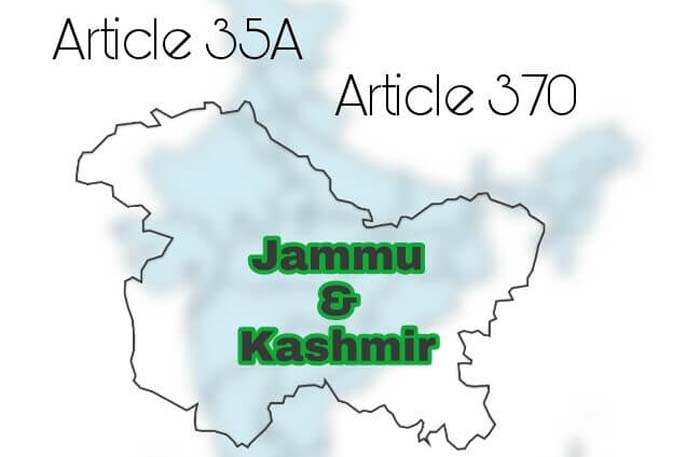J K News Today Commentary
The Article 35 A of the Indian constitution that grants special rights and privileges to the hereditary permanent residents of Jammu and Kashmir applies to the whole of the state and not to a particular region or community. This points needs to be understood in depth because there are strong voices in the Hindu dominated Jammu region that have ignored the communal narrative woven by some by adopting it as symbol of the Muslim identity in the Valley and few other parts of the State.
It has been wrongly presumed that this particular Article inserted in the Constitution through the Presidential Order of May 14, 1954 , was aimed at protection of the ethnic and religious identities of one particular community . Those peddling this theory have also contradicted themselves as they have traced the roots of this Article to the law enacted during Maharaja Hari Singh ‘s rule in 1927.
All Parties Hurriyat Conference Chairman Mirwaiz Umar Farooq who has threatened to lit the streets to make it a do or die issue for protecting the unique identity and Muslim majority character of the State, in one of his statements in August this year had recalled that how the last Dogra king had enacted the law to “ protect the interests of Kashmiri Pandits and Dogras..” Therefore, it is clear that the Article 35 A’s origin has no Islamic roots nor it is selectively applicable to the Muslims of the Valley only.
Several voices from Jammu, in particular that of the National Conference’s Provincial President for Jammu region Devender Singh Rana have supported the retention of the Article 35 A for the overall safety of the permanent residents of Jammu and Kashmir . Hindus of Jammu region and Buddhists of Ladakh and Sikhs of all the three regions have high stakes .
Sikh leader jagmohan Singh Raina has held several demonstrations seeking the protection of the Article 35 A for it benefits all communities. To make it look like an Article that protects only Muslims of the State is a historical and legal travesty .
Certain things are very clear that the Article 35 A that has existed as part of the constitution for more than 64 years is not under any threat by design. In fact, this would also be a wrong assumption that the legal challenge amounts to the political or communal challenge to the constitutional provision for the simple reason that it applies to Jammu and Kashmir , the special status state in the Indian union .
The challengers, “ We, the citizens,” and few other groups have challenged it on the basis of what they call its being discriminatory to the other citizens of India living in other parts of the country. They have cited the exclusive rights that the J&K legislature has to define the permanent residents of the State .This, they felt , ran against the supremacy of the Parliament that defines the citizens of India and there , they have argued, that there can be no difference between Indian citizens living in one or the other part of the country , including Jammu and Kashmir .
What has injected fears among all the permanent residents , barring few that have made a common cause with the challengers , that not only their land but also their jobs and scholarships to which they have exclusive rights by virtue of this Article would be encroached upon . This fear has been magnified by the Muslim leadership to achieve their other objectives rather than to see it as a legal challenge .
The Supreme Court has done justice to various states including Jammu and Kashmir in the past . This particular Article was upheld by the Supreme Court twice .
Had there been any communal or political design, there would have been counter protests and demonstrations against the Article 35 A, but since those are not there, therefore, the permanent residents of the State have nothing to fear . Let’s trust the judiciary and its wisdom.




